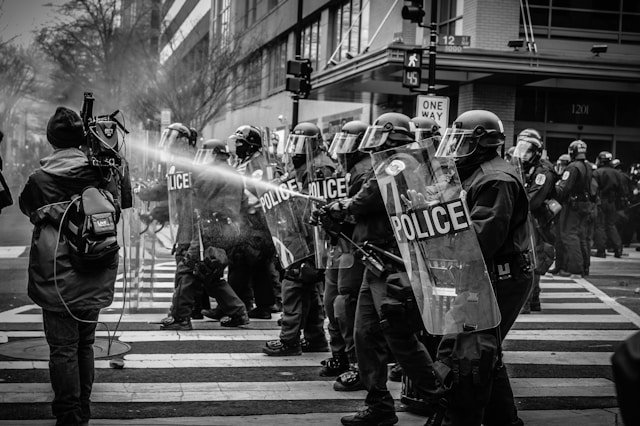After violent clashes between protest groups at UCLA, university officials cancel classes, citing safety and mental health concerns
The University of California, Los Angeles (UCLA) has cancelled all classes for Wednesday, May 1, following a night of severe unrest on campus related to ongoing protests over the conflict in the Middle East. The decision comes after a particularly turbulent evening at the Royce Quad, where violent encounters between pro-Palestinian and pro-Israel groups led to significant police involvement and several injuries.
UCLA officials released a statement early Wednesday morning detailing their decision, explaining that the move was necessary “due to the distress caused by the violence that took place late last night and early this morning.” This decision marks a dramatic response to the escalating tensions that have not only disrupted the academic environment but also raised serious security concerns.
The violence began late Tuesday when confrontations at a pro-Palestinian encampment escalated dramatically. Video footage from the scene shows counter-protesters storming the barricades, with physical altercations involving sticks and the deployment of pepper spray and fireworks. These aggressive actions led to several injuries, including one man in his mid-20s who was hospitalized with a head injury.
Los Angeles Mayor Karen Bass addressed the situation on social media, condemning the violence as “absolutely abhorrent and inexcusable.” She affirmed that the Los Angeles Police Department (LAPD) had been deployed to the scene to restore order. Councilwoman Katy Yaroslavsky echoed these sentiments, expressing gratitude to the LAPD and the mayor for their quick response to ensure campus safety.
Governor Gavin Newsom also weighed in, criticizing the initial delayed response by campus law enforcement and emphasizing that the right to free speech does not include inciting violence or lawlessness. He called for accountability for those involved in illegal activities, suggesting potential criminal prosecution, as well as academic sanctions like suspension or expulsion.
The situation has prompted calls for increased security measures on campus. Assemblyman Rick Chavez Zbur criticized UCLA administrators for their failure to protect students adequately, indicating a significant breakdown in communication and preparedness at the administrative level.
In response to the chaos, UCLA Chancellor Gene Block issued a statement condemning the attacks and extending sympathy to those affected. He outlined the university’s commitment to supporting the injured and fearful through health and mental health resources, emphasizing a zero-tolerance policy for violence on campus.
Mayor Bass has promised a full investigation into the events, with a focus on prosecuting those responsible for initiating violent acts and using fireworks and chemicals as weapons. This investigation aims to prevent future occurrences and restore safety and order on the UCLA campus.
The escalation of campus violence at UCLA highlights the intense emotions and political divisions surrounding the conflict in the Middle East, underscoring the challenges universities face in maintaining safe and inclusive environments for all students
